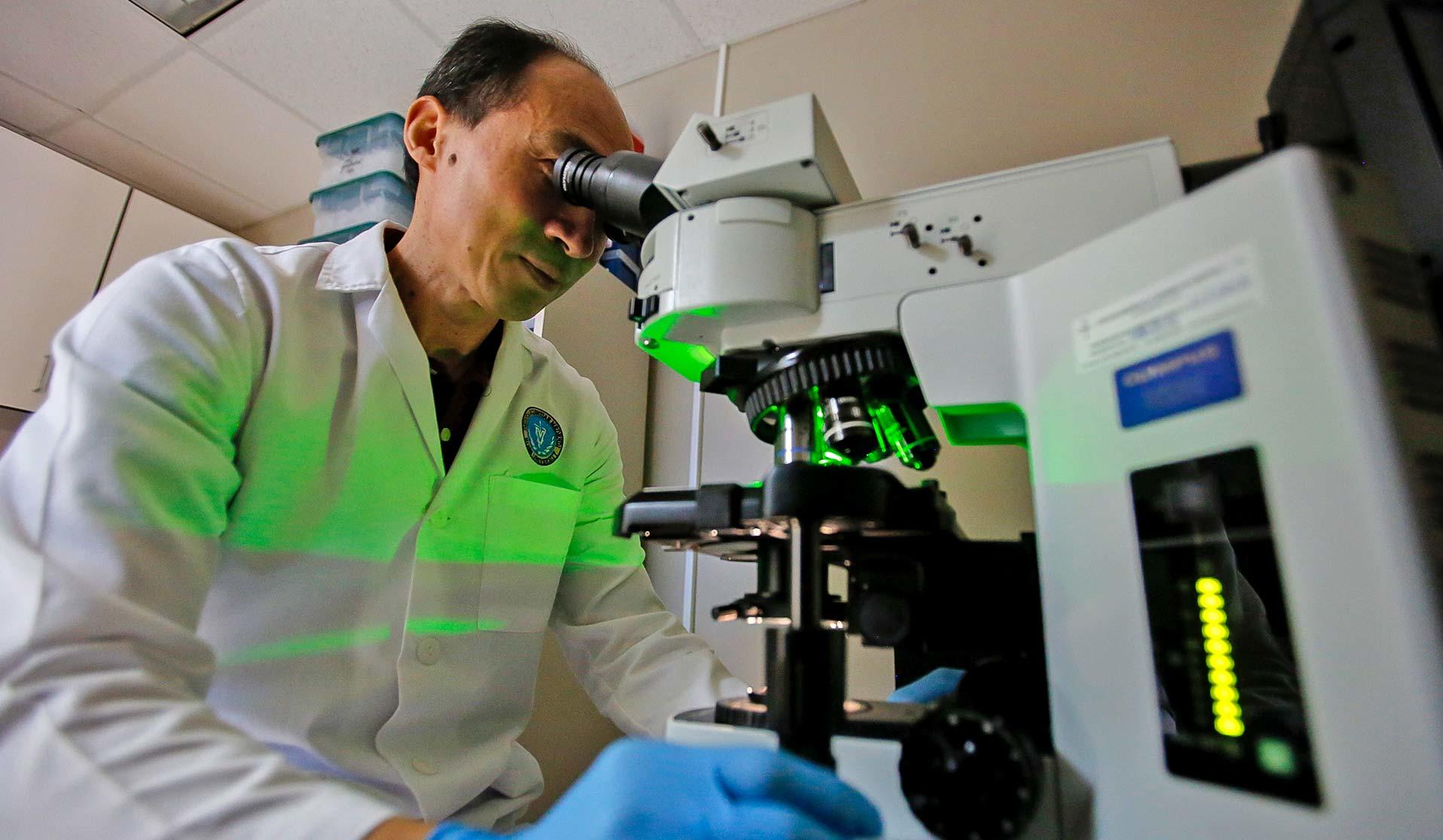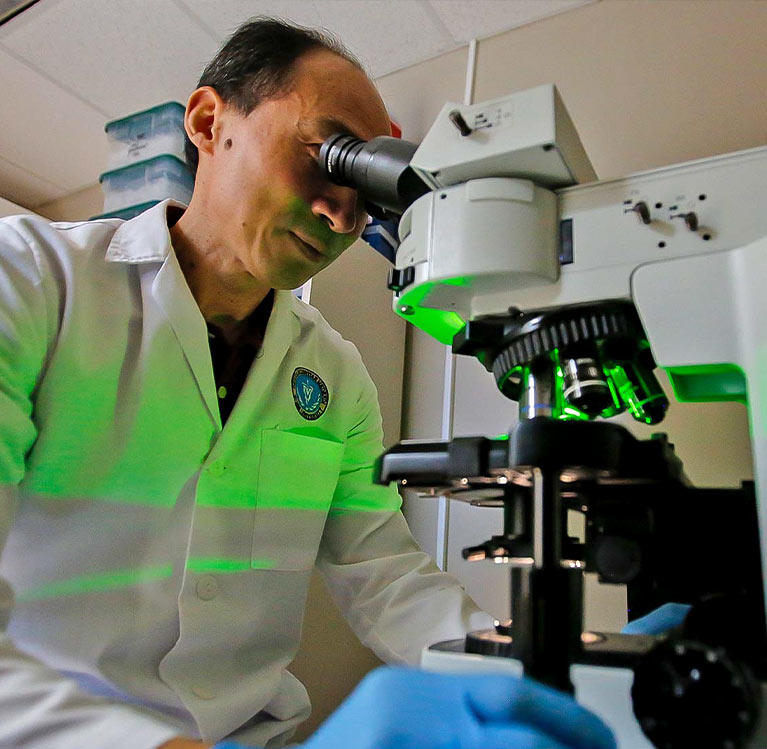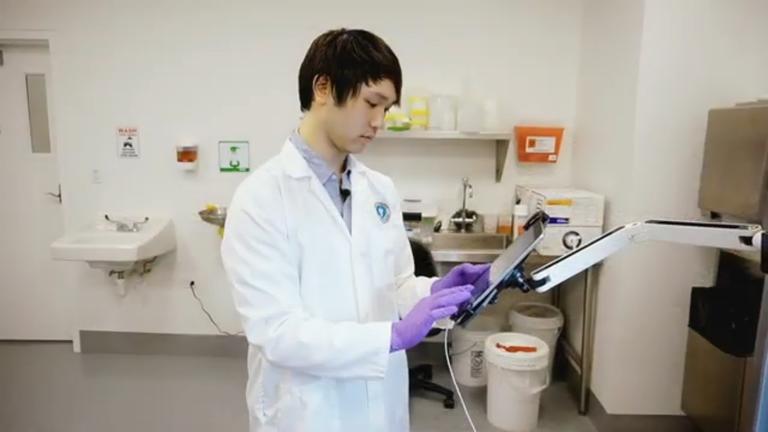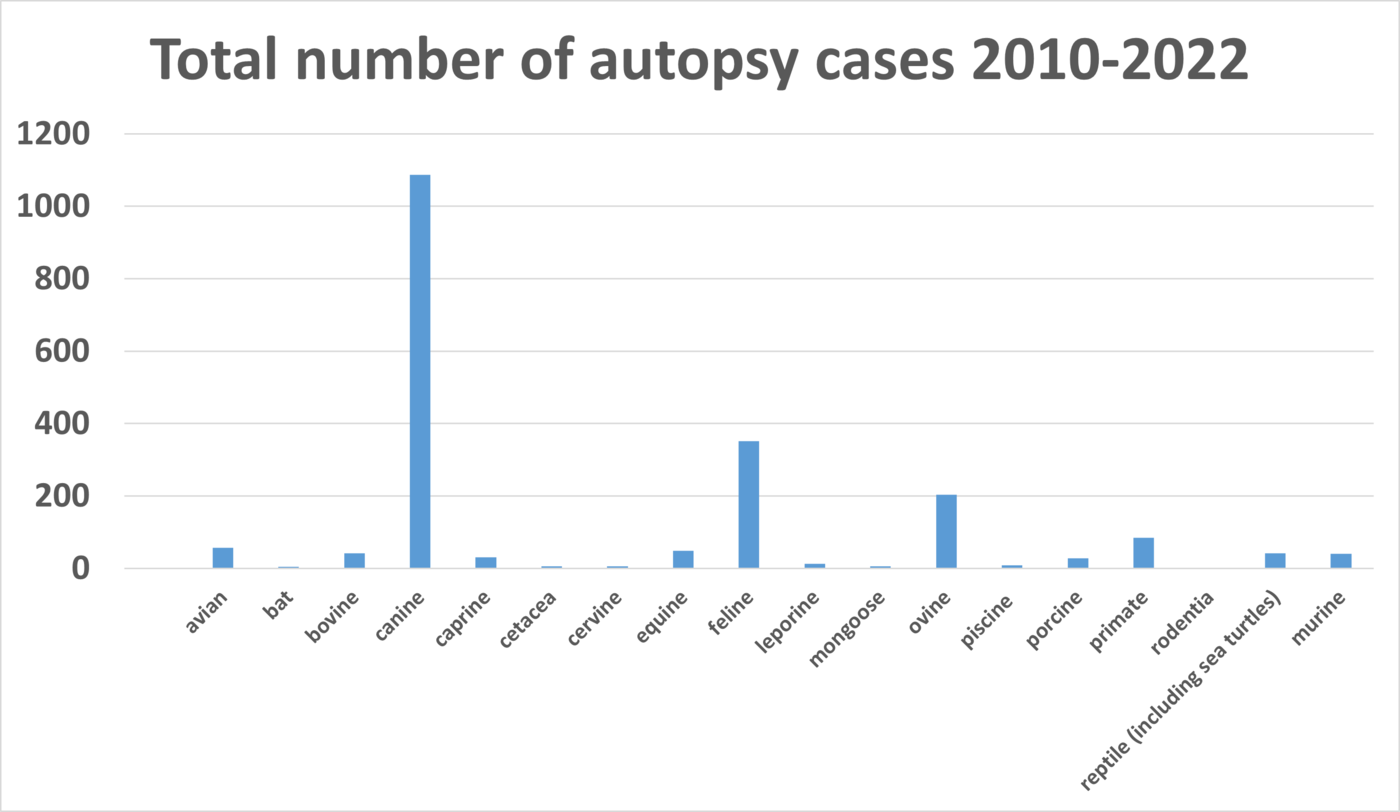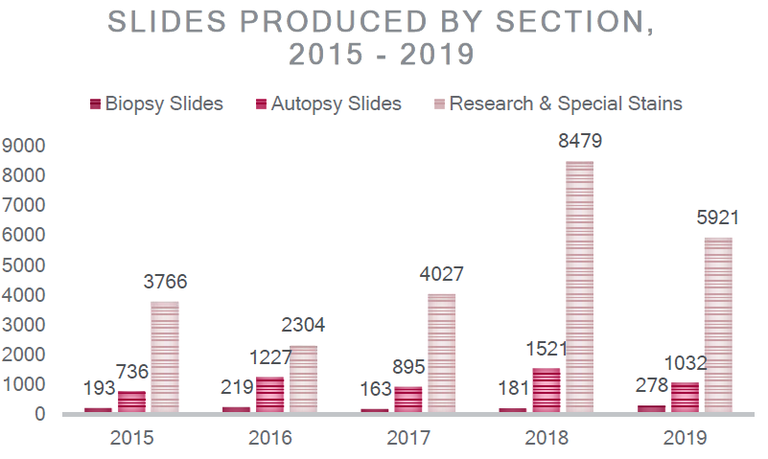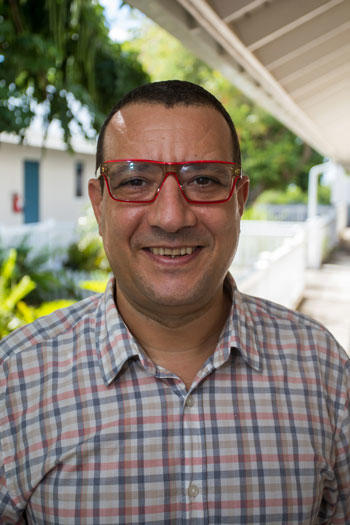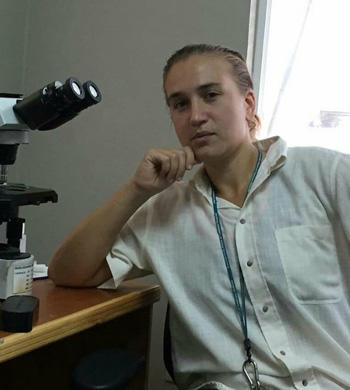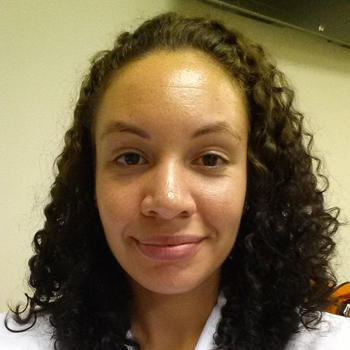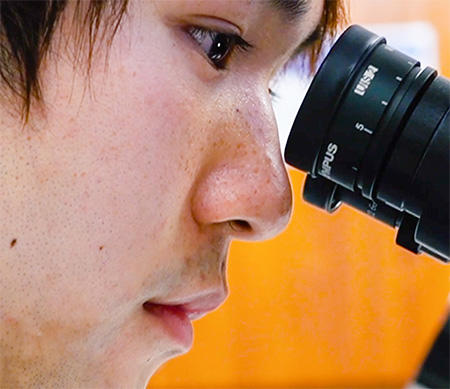COMBINED VETERINARY PATHOLOGY RESIDENCY AND MASTER OF SCIENCE BY RESEARCH DEGREE PROGRAM
The pathology training (clinical or anatomic pathology focused) combined with an MSc by Research degree position is a paid, three-year program. This position provides a unique opportunity for training in both clinical and anatomic veterinary pathology by five anatomic pathologists and three (clinical pathologists).
In addition, it offers an opportunity to earn an MSc by Research degree in a related areas such as One health, tropical animal diseases, conservation medicine or other research areas supported by the university. The training will include diagnostic pathology, teaching and research and prepare the candidate to be a strong contender for competitive jobs and research positions internationally.
The objectives of the pathology residency training are to develop skills in clinical and anatomic pathology in preparation for American College of Veterinary Pathologists (ACVP) board certification examination. Through collaboration with other ACVP residency centers and diagnostic laboratories, we will offer opportunities for additional training to meet the current and future examination eligibility requirements.
VETERINARY PATHOLOGY TRAINEE DUTIES & RESPONIBILITIES
Pathology trainees are expected to spend a portion of their time interacting with veterinary students, primarily in the laboratory setting, and performing diagnostics under the supervision of clinical and anatomic pathologists in weekly rotations. The resident will have ample training and learning opportunities in subspecialty areas of veterinary clinical pathology and anatomic pathology, including cytopathology, hemopathology, histopathology and autopsy. This will be determined based on the resident’s choice to pursue either clinical pathology or anatomical pathology track.
The trainee is also expected to complete a MSc by Research degree program, and to submit two manuscripts suitable for publication. Additional duties and responsibilities may be assigned by the Head of the Biomedical Department or Pathology Division Head as needed.
PROGRAM QUALIFICATIONS
To be considered for this program, candidates must possess the following:
- A Doctor of Veterinary Medicine (DVM) degree or equivalent.
- Excellent interpersonal communication skills and a demonstrated ability to work with others in a collegial team atmosphere.
- A strong desire for advanced clinical pathology and/or anatomic pathology training, leading to ACVP/ECVP-Board certification.
START TERMS
This Veterinary Pathology Residency Training and MSc by Research Degree Program operates on a three-year cycle. The next intake for this program will begin on July 1, 2024.
More information about moving and living in St. Kitts, can be found here: https://veterinary.rossu.edu/life-in-st-kitts or here: https://veterinary.rossu.edu/life-in-st-kitts/exploring-st-kitts.
REQUEST INFORMATION
For more information about this program, please contact Talent Acquisition at RossVetJobs@rossvet.edu.kn
OUR RESEARCH AND PATHOLOGY FACILITIES
Ross Vet offers a unique program of training on the island of St. Kitts in the Caribbean. A curriculum with innovative use of technology and simulations provides the best possible training for tomorrow’s veterinarians.
A new Research and Pathology building was inaugurated in 2018, creating 13,000 square feet of research space, including eight laboratories. The site features 2,000 square feet dedicated to pathology, including:
- Autopsy and histology suites
- An overhead camera
- An interactive viewing gallery
- A multiheaded microscopy room for 10 observers
The research and pathology sections of the building were designed to BSL-2 biosafety standards.
Our ongoing research focuses on key issues strategically relevant to One health in tropical and developing countries and include zoonotic diseases, food safety and security, environmental health, and conservation medicine.
PATHOLOGY BOARD EXAMINATION
We are currently transitioning from a two year to a three-year program which would allow the candidate to sit Phase 1 and Phase 2 board exam and to potentially align with the new ACVP training program accreditation guidelines.
STRUCTURE – REQUIREMENTS
The completion of a master’s degree is something that we strongly encourage. Our program is designed for someone with very little exposure to pathology but with a strong motivation to learn.
More information here: https://veterinary.rossu.edu/postgraduate/msc-research.
This will vary depending on the project: teaching and service duties including training will be prioritized followed by research duties and other activities such as organizing weekly rounds (WSC or own cases), assisting with the submission of 2 cases each year to WSC etc.
There is flexibility in choosing the topic of your research by facilitating meetings with various Principal Investigators (PI’s) and incorporating previously mastered techniques would be an advantage. We strongly encourage some pathology component in the broadest sense to be included the MSc project. This may involve the wider study of diseases and span other disciplines such as molecular biology, bacteriology, epidemiology, parasitology etc…
Our Histology and Research lab has the infrastructure and offers support for performing IHC. This is performed mainly as part of research projects and is not routinely used for diagnostic cases.
Most of the submissions are fresh cases. While we encourage clinicians to work with us in submitting cases as soon as possible, we do sometimes we get frozen cases during school breaks or when cases come from other islands.
Our training program is not available through the match program.
CASE LOAD
Anatomic pathology has about 200 autopsy cases per year and about 100-150 biopsies per year. Clinical pathology averages are estimated at:
- Hematology: about 2000 cases
- Chemistry: about 2000 cases
- Cytology: about 200 cases
Below are example from previous years for autopsies and histology service.
BENEFITS
The program offers funding for one continuous education event each year (course, conference, externships etc.) The trainee is strongly encouraged to attend the annual ACVP or ECVP meeting at least once and prepare and present a poste or oral presentation of their own research or a case report. Externships do not have to be taken during vacation time.
The trainee will receive Coach/Economy class airfare to relocate to St. Kitts and to repatriate once the program is complete. In addition, a lump sum payment of US $1,000 for reasonable and customary costs associated with relocation is provided.
RUSVM’s policy allows Interns to take 10 days paid vacation per year, the date and timing of which must be scheduled in advance with the approval of the Department Head, Biomedical Sciences.
All health benefits for trainees are currently covered by the University at 100% of cost, with the option to cover spouse and/or dependents with 100% of the health care benefit costs covered by the trainee in the form of payroll deduction.
To standardize and simplify our process and to allow us to more easily compare and contrast recommendations, if chosen for an interview you will receive an email with a link to our reference system. Within the system you will be prompted to enter the contact information for up to 5 references. You need only submit 3 at a minimum. Your referees will then receive an email with a similar link. It should take them no more than 20-30 minutes to complete the reference questions.



